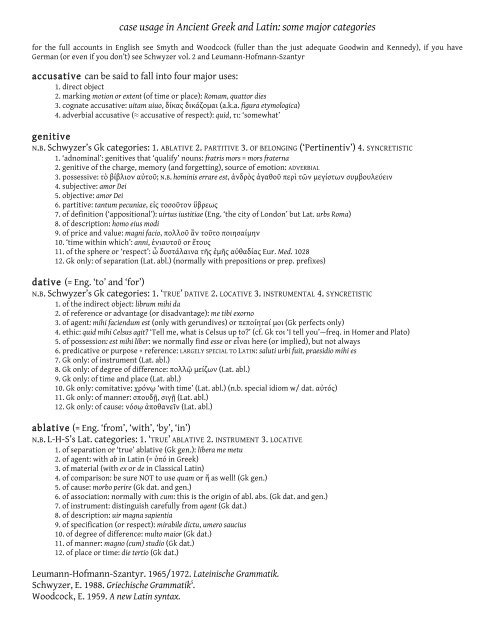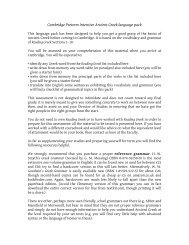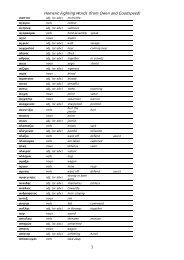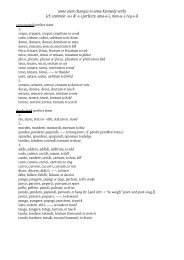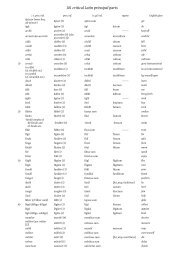Cambridge Preterm Non-Intensive Ancient Greek language pack
present stem forms - CW's language page
present stem forms - CW's language page
- No tags were found...
Create successful ePaper yourself
Turn your PDF publications into a flip-book with our unique Google optimized e-Paper software.
case usage in <strong>Ancient</strong> <strong>Greek</strong> and Latin: some major categories<br />
for the full accounts in English see Smyth and Woodcock (fuller than the just adequate Goodwin and Kennedy), if you have<br />
German (or even if you don’t) see Schwyzer vol. 2 and Leumann-Hofmann-Szantyr<br />
accusative can be said to fall into four major uses:<br />
1. direct object<br />
2. marking motion or extent (of time or place): Romam, quattor dies<br />
3. cognate accusative: uitam uiuo, !"#$% !&#'()*$& (a.k.a. figura etymologica)<br />
4. adverbial accusative (! accusative of respect): quid, +&: ‘somewhat’<br />
genitive<br />
N.B. Schwyzer’s Gk categories: 1. ABLATIVE 2. PARTITIVE 3. OF BELONGING (‘Pertinentiv’) 4. SYNCRETISTIC<br />
1. ‘adnominal’: genitives that ‘qualify’ nouns: fratris mors = mors fraterna<br />
2. genitive of the charge, memory (and forgetting), source of emotion: ADVERBIAL<br />
3. possessive: +, -"-.&)/ $0+)1; N.B. hominis errare est, 2/!3,% 24$5)1 6738 +9/ *74":+;/ :


